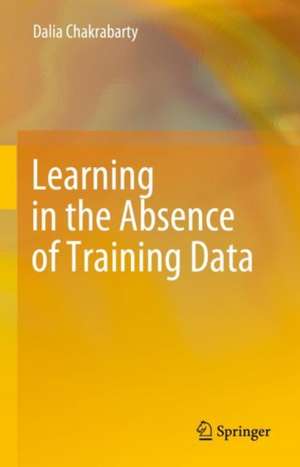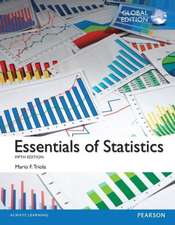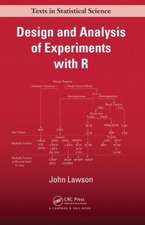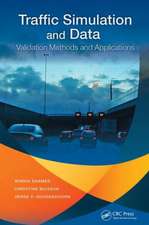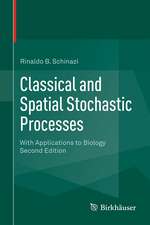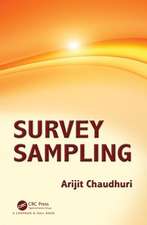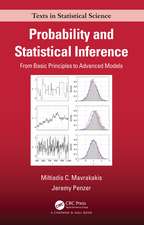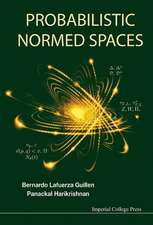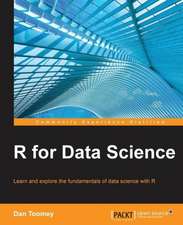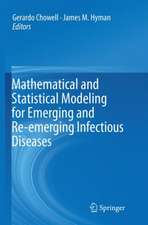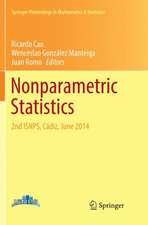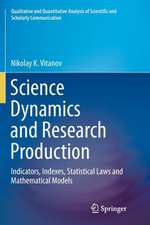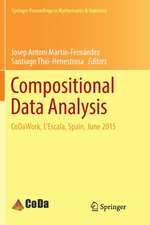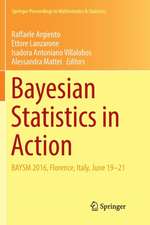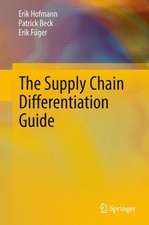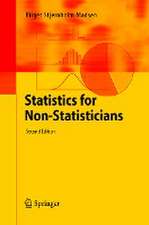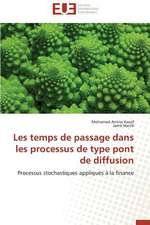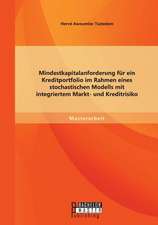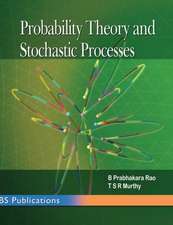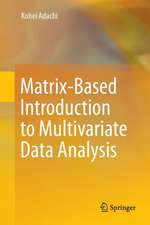Learning in the Absence of Training Data
Autor Dalia Chakrabartyen Limba Engleză Hardback – 14 iul 2023
Preț: 893.84 lei
Preț vechi: 1090.06 lei
-18% Nou
Puncte Express: 1341
Preț estimativ în valută:
171.03€ • 178.57$ • 141.55£
171.03€ • 178.57$ • 141.55£
Carte tipărită la comandă
Livrare economică 04-18 aprilie
Preluare comenzi: 021 569.72.76
Specificații
ISBN-13: 9783031310102
ISBN-10: 3031310101
Pagini: 227
Ilustrații: XVIII, 227 p. 29 illus., 16 illus. in color.
Dimensiuni: 155 x 235 mm
Greutate: 0.53 kg
Ediția:2023
Editura: Springer International Publishing
Colecția Springer
Locul publicării:Cham, Switzerland
ISBN-10: 3031310101
Pagini: 227
Ilustrații: XVIII, 227 p. 29 illus., 16 illus. in color.
Dimensiuni: 155 x 235 mm
Greutate: 0.53 kg
Ediția:2023
Editura: Springer International Publishing
Colecția Springer
Locul publicării:Cham, Switzerland
Cuprins
1 Bespoke Learning to generate originally-absent training data.- 2 Forecasting by Learning Evolution-Driver - Application to Forecasting New COVID19 Infections.- 3 Potential to Density - Application to Learning Galactic Gravitational Mass Density.- 4 Bespoke Learning in Static Systems - Application to Learning Sub-surface Material Density Function.- 5 Bespoke Learning of Output using Inter-Network Distance - Application to Haematology-Oncology.- A Bayesian inference by posterior sampling using MCMC.
Notă biografică
Dr. Dalia Chakrabarty has a D.Phil in Astrophysics from the University of Oxford, which she pursued after obtaining an M.S. from the Department of Physics at the Indian Institute of Science. Following her doctoral work, she diversified into developing methodologies for the learning of properties in generic systems, given variously challenging data situations, and making applications of such methods to various real-world problems across disciplines. She works in the Department of Mathematics, at Brunel University London, and her main areas of interest include mathematical foundations of Machine Learning (ML) within a Bayesian paradigm.
Textul de pe ultima copertă
This book introduces the concept of “bespoke learning”, a new mechanistic approach that makes it possible to generate values of an output variable at each designated value of an associated input variable. Here the output variable generally provides information about the system’s behaviour/structure, and the aim is to learn the input-output relationship, even though little to no information on the output is available, as in multiple real-world problems. Once the output values have been bespoke-learnt, the originally-absent training set of input-output pairs becomes available, so that (supervised) learning of the sought inter-variable relation is then possible. Three ways of undertaking such bespoke learning are offered: by tapping into system dynamics in generic dynamical systems, to learn the function that causes the system’s evolution; by comparing realisations of a random graph variable, given multivariate time series datasets of disparate temporal coverage; and by designing maximally information-availing likelihoods in static systems. These methodologies are applied to four different real-world problems: forecasting daily COVID-19 infection numbers; learning the gravitational mass density in a real galaxy; learning a sub-surface material density function; and predicting the risk of onset of a disease following bone marrow transplants. Primarily aimed at graduate and postgraduate students studying a field which includes facets of statistical learning, the book will also benefit experts working in a wide range of applications. The prerequisites are undergraduate level probability and stochastic processes, and preliminary ideas on Bayesian statistics.
Caracteristici
Describes a new reliable forecasting technique that works by learning the evolution-driving function Presents a way of comparing two disparately-long time series datasets via a distance between graphs Introduces a new learning technique that permits generation of absent training data, with applications
